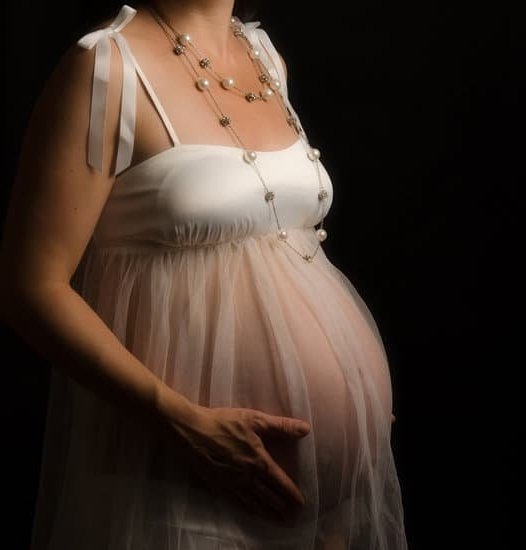Are you wondering, “Is constipation a sign of early pregnancy?” Many women experience constipation as one of the early indicators that they may be expecting. Understanding the subtle signs and symptoms of pregnancy can help in recognizing these changes in your body.
During pregnancy, hormonal changes can slow down the digestive system, leading to constipation. As a result, many women may notice this symptom even before other typical signs of pregnancy become apparent. It’s essential to be aware of how constipation can be a potential early indication that you might be pregnant.
In addition to constipation, there are several other common signs of early pregnancy to keep an eye out for, such as nausea, fatigue, breast tenderness, and frequent urination. Recognizing these signs along with constipation can help you determine if you should consider taking a pregnancy test. If you suspect that you might be pregnant, it’s crucial to pay attention to your body and seek support from a healthcare provider for confirmation and guidance on next steps.
What Causes Constipation During Pregnancy?
Constipation is a common issue during pregnancy, affecting many expectant mothers. Several factors contribute to constipation in pregnant women, including hormonal changes, the growing uterus putting pressure on the intestines, and prenatal vitamins containing high levels of iron. These factors can slow down the movement of food through the digestive system, leading to difficulty in passing stools.
One way constipation can be a sign of early pregnancy is due to the increase in progesterone levels that occur shortly after conception. Progesterone relaxes the muscles throughout the body, including the intestines, which can lead to slower digestion and constipation. Therefore, if you are experiencing constipation along with other early signs of pregnancy such as fatigue, nausea, and breast tenderness, it may be an indication that you are pregnant.
In addition to constipation, there are several other common signs of early pregnancy to be aware of. These include missed periods, frequent urination, food aversions or cravings, mood swings, and heightened sense of smell. If you suspect you might be pregnant based on these signs, it is important to take a pregnancy test for confirmation and consult with your healthcare provider for further guidance on prenatal care.
| Factors Contributing to Constipation | How Progesterone Affects Digestion |
|---|---|
| Hormonal changes | Progesterone relaxes intestinal muscles |
| Uterine pressure on intestines | Slows down movement of food |
| Vitamins high in iron | Contributes to difficulty passing stools |
How Constipation Can Be a Sign of Early Pregnancy
Constipation is a common issue faced by many pregnant women, and it can indeed be a sign of early pregnancy. As a woman’s body undergoes hormonal changes in the early stages of pregnancy, it often leads to a slower digestive system. This slowdown in digestion can result in constipation, making it an indicator for some women that they may be expecting.
One key hormone responsible for this change is progesterone, which increases during pregnancy and relaxes the muscles in the intestines. As a result, food moves more slowly through the digestive tract, allowing more time for the absorption of nutrients but also leading to constipation. Additionally, the pressure from the expanding uterus on the rectum can contribute to difficulty passing stool.
In addition to constipation, other signs of early pregnancy include fatigue, nausea or morning sickness, breast tenderness, frequent urination, and mood swings. It’s important to note that not all women will experience these symptoms, and they can vary greatly from person to person. If you suspect you might be pregnant and are experiencing constipation along with other potential signs, consider taking a pregnancy test and consulting with your healthcare provider for confirmation and guidance on next steps.
| Early Pregnancy Symptom | Description |
|---|---|
| Constipation | A result of hormonal changes causing slower digestion |
| Morning Sickness | Nausea often experienced in the morning but can occur at any time of day |
| Fatigue | Feeling extremely tired despite getting enough rest |
Other Common Signs of Early Pregnancy to Look Out For
Many women wonder, “Is constipation a sign of early pregnancy?” The answer is yes, it can be. In fact, constipation is a common symptom that many pregnant women experience in the early stages of pregnancy. This occurs due to hormonal changes that slow down the movement of food through the digestive system, leading to difficulty passing stools.
Here are some other common signs of early pregnancy to look out for:
- 1. Nausea and vomiting, often referred to as morning sickness
- 2. Fatigue and increased tiredness
- 3. Breast tenderness and swelling
These symptoms can vary from woman to woman and may also change in intensity throughout the course of the pregnancy. It’s important to pay attention to your body and any changes you may be experiencing.
In addition to constipation, if you are experiencing any combination of these symptoms mentioned above along with a missed period, it may be a good time to consider taking a pregnancy test. While these signs are not definitive proof of pregnancy, they could indicate that further investigation is needed. Remember, every woman’s experience with early pregnancy symptoms is unique, so it’s essential not to rely on them alone for confirmation.
Tips for Easing Constipation During Pregnancy
During pregnancy, constipation can often be a common issue that many women experience. The hormonal changes and physical pressure of the growing uterus can lead to slower digestion and difficulty passing stool. If you are wondering, “is constipation a sign of early pregnancy?” the answer is yes. Constipation can actually be one of the early signs that indicate you may be expecting.
Why Constipation Occurs During Pregnancy
Constipation during pregnancy is primarily due to the hormone progesterone, which relaxes the muscles in your digestive tract, leading to slower movement of food through your system. Additionally, as the uterus expands, it puts pressure on your intestines, further slowing down digestion. It is important to stay hydrated and maintain a fiber-rich diet to help alleviate constipation during this time.
Tips for Easing Constipation
There are several ways to help ease constipation during pregnancy. Increasing your water intake can make stools softer and easier to pass. Eating high-fiber foods such as fruits, vegetables, and whole grains can also aid in relieving constipation. Regular exercise and staying active can promote bowel movements as well. It is essential to speak with your healthcare provider before taking any over-the-counter remedies to ensure they are safe for pregnancy.
When to Take a Pregnancy Test if You Suspect You’re Pregnant
When Is the Right Time to Take a Pregnancy Test
If you suspect that you might be pregnant due to experiencing symptoms like constipation, it is important to know when is the right time to take a pregnancy test. Most home pregnancy tests are designed to detect the hormone hCG in your urine, which is only produced once a fertilized egg attaches to the uterine lining. For more accurate results, it is recommended to wait until at least a week after your missed period before taking a test.
Early Signs of Pregnancy That May Prompt You to Take a Test
Constipation can be one of the early signs of pregnancy, along with other symptoms such as nausea, fatigue, breast tenderness, and frequent urination. If you experience these symptoms and suspect you might be pregnant, it may be a good idea to take a pregnancy test. Keep in mind that not everyone will experience all of these symptoms, so it’s important to listen to your body and consult with a healthcare provider if you have any concerns.
Importance of Taking Action if You Think You’re Pregnant
If you suspect that constipation may be a sign of early pregnancy for you and you receive a positive result on a home pregnancy test, it is important to seek confirmation from a healthcare provider. They can provide further guidance, confirm the pregnancy through blood tests or ultrasound examinations, and offer support throughout your journey. It’s important to take control of your health and well-being during this critical time.
The Importance of Speaking to a Healthcare Provider for Confirmation
During the early stages of pregnancy, it is essential to speak to a healthcare provider for confirmation if you suspect you might be pregnant. While constipation alone may not definitively confirm pregnancy, it can be one of several signs pointing towards a possible pregnancy. It is crucial to seek medical advice for proper evaluation and guidance on managing potential pregnancy symptoms.
When experiencing constipation and wondering, “is constipation a sign of early pregnancy?” it is important to consider other common signs as well. Nausea, fatigue, increased urination frequency, mood swings, and breast tenderness are all typical early signs of pregnancy that may accompany constipation. If you are experiencing a combination of these symptoms along with irregular bowel movements, it could indicate a possible pregnancy.
To help determine if constipation is indeed linked to early pregnancy or if there are other underlying causes, it is recommended to take a pregnancy test. A healthcare provider can provide information on when to take the test for accurate results.
Additionally, they can offer support and guidance throughout your journey towards confirming your pregnancy and ensuring your health and well-being during this critical time. Remember that seeking professional advice is vital in understanding the signs of early pregnancy and receiving appropriate care.
- Consulting with a healthcare provider for confirmation
- Considering other common signs of early pregnancy
- Taking a proper pregnancy test under medical guidance
Conclusion
In conclusion, recognizing the signs of early pregnancy, including constipation, is crucial for women who are trying to conceive or suspect they may be pregnant. While constipation alone may not definitively indicate pregnancy, it can be a common symptom experienced by many women in the early stages. Understanding the various signs and symptoms of early pregnancy, such as nausea, fatigue, and breast tenderness, can help individuals better assess their own likelihood of being pregnant.
If you are experiencing constipation along with other potential signs of early pregnancy, it is important to seek support from a healthcare provider. They can provide guidance on when to take a pregnancy test and offer advice on easing discomfort during this time. Additionally, speaking with a professional can help confirm your suspicions and provide valuable information on managing your health throughout the early stages of pregnancy.
Remember that every woman’s experience with early pregnancy symptoms may vary, and not all individuals will experience constipation as a sign of being pregnant. However, staying informed about potential signs and seeking medical support when needed is essential for monitoring your reproductive health. If you have any concerns about whether constipation is a sign of early pregnancy for you personally, consult with your healthcare provider for personalized advice and guidance.
Frequently Asked Questions
How Early in Pregnancy Does Constipation Start?
Constipation can start early in pregnancy, even in the first few weeks after conception. Hormonal changes, particularly the rise in progesterone levels, can slow down digestion and lead to constipation. Additionally, prenatal vitamins with iron can contribute to this issue.
Is Constipation a Sign of Implantation?
While constipation is not a direct sign of implantation itself, it can be a common symptom experienced by some women after implantation occurs. The hormonal changes that come with pregnancy, including the increase in progesterone levels, can slow down digestion and lead to constipation.
What Symptoms Do You Have at 1 Week Pregnant?
At 1 week pregnant, most women may not experience noticeable symptoms yet since conception typically occurs around the end of week 2 or beginning of week 3 of the menstrual cycle. However, some women may start to feel very early signs such as light spotting or slight cramping due to implantation occurring within the uterus.

Welcome to my fertility blog. This is a space where I will be sharing my experiences as I navigate through the world of fertility treatments, as well as provide information and resources about fertility and pregnancy.





